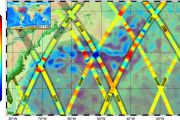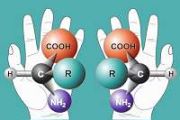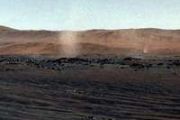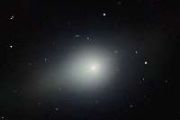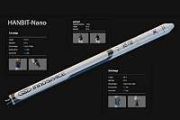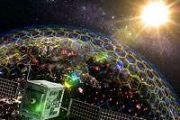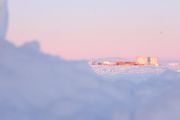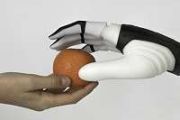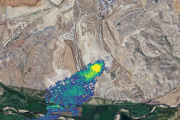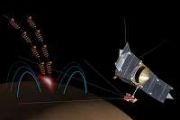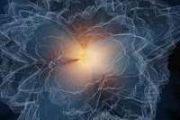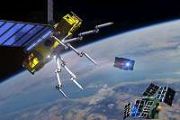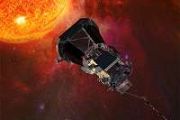
Copernical Team
NASA uses two worlds to test future Mars helicopter designs
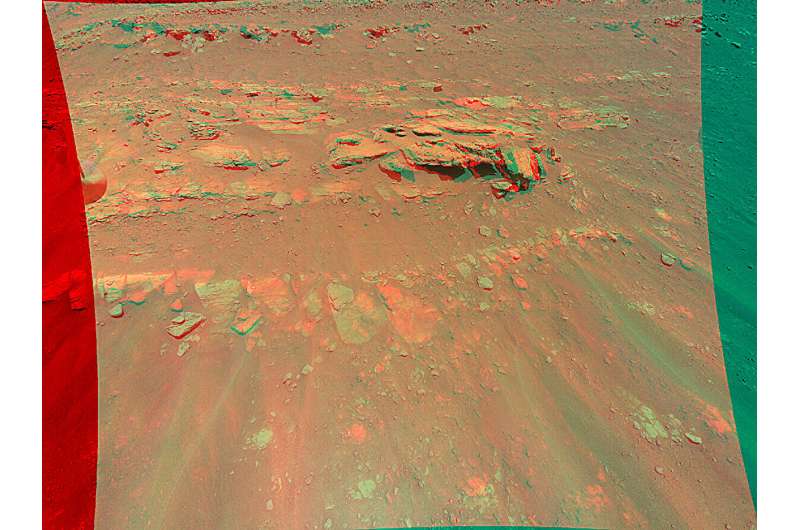
For the first time in history, two planets have been home to testing future aircraft designs. In this world, a new rotor that could be used with next-generation Mars helicopters was recently tested at NASA's Jet Propulsion Laboratory in Southern California, spinning at near-supersonic speeds (0.95 Mach). Meanwhile, the agency's Ingenuity Mars Helicopter has achieved new altitude and airspeed records on the Red Planet in the name of experimental flight testing.
Life beyond the leak for ESA’s CryoSat
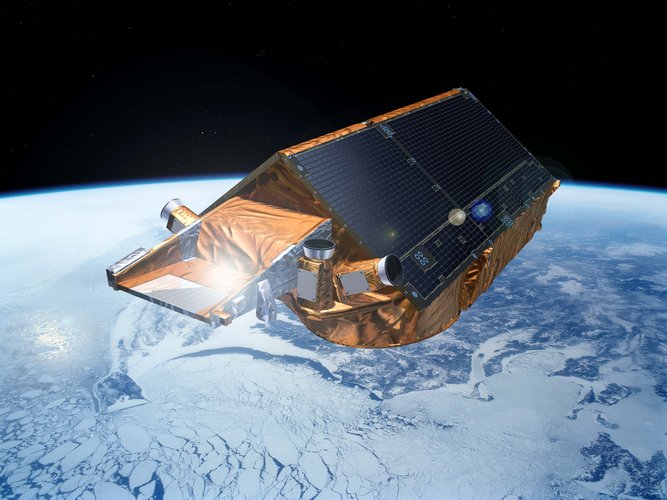
Innovative Spray-in-Place Liner System Revolutionizes Nuclear Plant Maintenance
 Framatome, a leader in nuclear energy solutions, recently announced a significant breakthrough in nuclear plant maintenance technology. The company has successfully completed a two-year test program for what is being hailed as the industry's first spray-in-place liner system designed for rehabilitating buried piping. This development marks a pivotal moment in addressing the long-standing challen
Framatome, a leader in nuclear energy solutions, recently announced a significant breakthrough in nuclear plant maintenance technology. The company has successfully completed a two-year test program for what is being hailed as the industry's first spray-in-place liner system designed for rehabilitating buried piping. This development marks a pivotal moment in addressing the long-standing challen Polarized world threatens open internet: ICANN
 After 25 years of keeping the internet strong and stable, the nonprofit ICANN - responsible for its technical infrastructure - is warning that increasingly polarized geopolitics could start cracking the foundations of the online world.
"It's super important to differentiate between what countries decide to do with controlling content, as opposed to the technical infrastructure," the Intern
After 25 years of keeping the internet strong and stable, the nonprofit ICANN - responsible for its technical infrastructure - is warning that increasingly polarized geopolitics could start cracking the foundations of the online world.
"It's super important to differentiate between what countries decide to do with controlling content, as opposed to the technical infrastructure," the Intern UNFCCC report validates CO2 estimated cheaply and transparently using GOSAT data
 Researchers in Japan and Mongolia have carried out the world's first instance of incorporating satellite-based CO2 emission estimates into a GHG emission report as the verification on the Second Biennial Update Report (BUR2) of Mongolia submitted to the UNFCCC on 15 November 2023, resulting in high accuracy match with actual reported values, reports a new study published online in Scientific Rep
Researchers in Japan and Mongolia have carried out the world's first instance of incorporating satellite-based CO2 emission estimates into a GHG emission report as the verification on the Second Biennial Update Report (BUR2) of Mongolia submitted to the UNFCCC on 15 November 2023, resulting in high accuracy match with actual reported values, reports a new study published online in Scientific Rep Satellite data can help limit the dangers of windblown dust
 Interstate 10, an artery that cuts through the rural drylands of southern New Mexico, is one of the country's deadliest roadways. On one stretch of the highway, just north of a dry lakebed called Lordsburg Playa, fatal collisions occur with such regularity that officials often call it the "dust trap." It's a fitting name. Since 1967, at least 55 deaths in the area have been linked to dust storms
Interstate 10, an artery that cuts through the rural drylands of southern New Mexico, is one of the country's deadliest roadways. On one stretch of the highway, just north of a dry lakebed called Lordsburg Playa, fatal collisions occur with such regularity that officials often call it the "dust trap." It's a fitting name. Since 1967, at least 55 deaths in the area have been linked to dust storms NASA's PACE arrives in Florida for final processing for 2024 launch
 NASA's PACE spacecraft completed its journey Tuesday, Nov. 14, from NASA's Goddard Space Flight Center in Greenbelt, Maryland, to the Astrotech Spacecraft Operations facility near the agency's Kennedy Space Center in Florida.
Engineers and technicians arrived ahead of the spacecraft to prepare ground equipment for offloading and processing before fueling and final encapsulation.
PACE
NASA's PACE spacecraft completed its journey Tuesday, Nov. 14, from NASA's Goddard Space Flight Center in Greenbelt, Maryland, to the Astrotech Spacecraft Operations facility near the agency's Kennedy Space Center in Florida.
Engineers and technicians arrived ahead of the spacecraft to prepare ground equipment for offloading and processing before fueling and final encapsulation.
PACE Intelsat's MOTT proves its mettle in US Army's annual NetModX
 Intelsat (NYSE: I), a leading operator in the satellite and terrestrial network sector, recently showcased the robust capabilities of its Multi-Orbit Tactical Terminal (MOTT) in a significant field test conducted with the U.S. Army. This demonstration, part of the Army's annual Network Modernization Experiment (NetModX), highlighted the MOTT's ability to provide high-speed, uninterrupted satelli
Intelsat (NYSE: I), a leading operator in the satellite and terrestrial network sector, recently showcased the robust capabilities of its Multi-Orbit Tactical Terminal (MOTT) in a significant field test conducted with the U.S. Army. This demonstration, part of the Army's annual Network Modernization Experiment (NetModX), highlighted the MOTT's ability to provide high-speed, uninterrupted satelli EU Council endorses new Space Strategy for Enhanced Security and Defence
 In a landmark decision, the Council of the European Union has approved conclusions on the pioneering EU Space Strategy for Security and Defence. This strategy underscores the EU's commitment to fortifying its stance as a global space power amidst rising security challenges in the space domain.
The Council, an influential body comprising national ministers from each EU country, emphasized t
In a landmark decision, the Council of the European Union has approved conclusions on the pioneering EU Space Strategy for Security and Defence. This strategy underscores the EU's commitment to fortifying its stance as a global space power amidst rising security challenges in the space domain.
The Council, an influential body comprising national ministers from each EU country, emphasized t CubeSat launch platform by Vector Space Biosciences will boost space biotech
 In a new collaboration, Vector Space Biosciences, Inc. has joined forces with Oracle and NVIDIA to introduce a novel small satellite launch platform for CubeSat and NanoSats, that have been specifically designed to cater to the needs of the biotechnology and pharmaceutical sectors.
This innovative platform represents a combination of several cutting-edge technologies, including a bioscienc
In a new collaboration, Vector Space Biosciences, Inc. has joined forces with Oracle and NVIDIA to introduce a novel small satellite launch platform for CubeSat and NanoSats, that have been specifically designed to cater to the needs of the biotechnology and pharmaceutical sectors.
This innovative platform represents a combination of several cutting-edge technologies, including a bioscienc 


